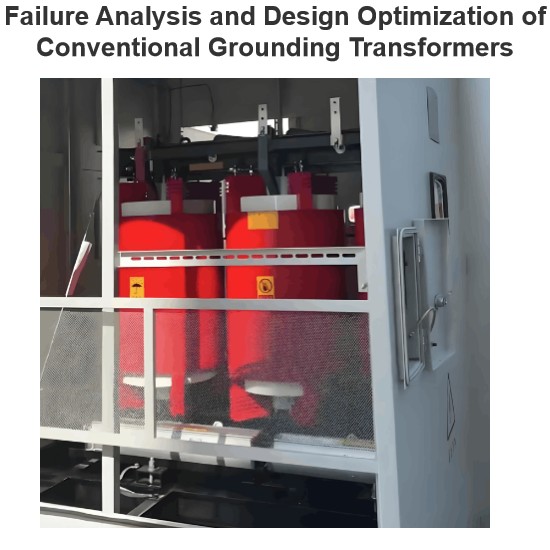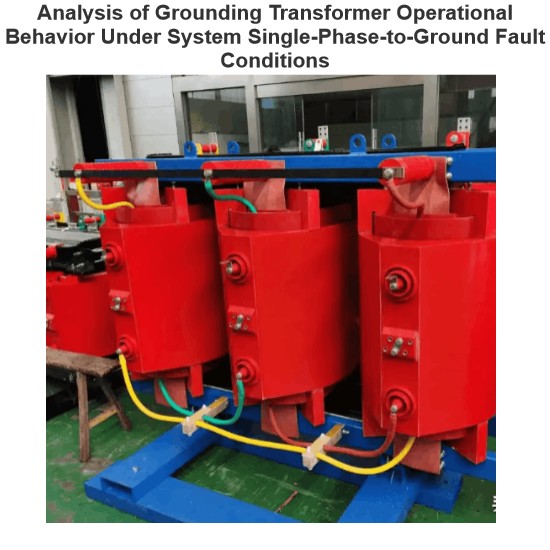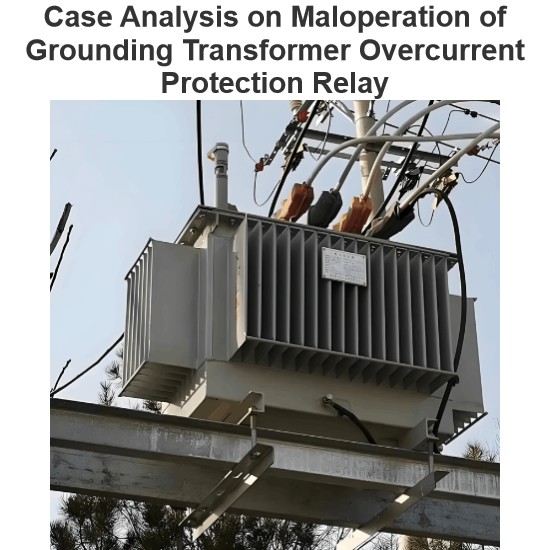FAQ About Lubrication Role in High Voltage Circuit Breakers
The Importance of Lubrication
In high-voltage circuit breakers, lubrication plays a crucial role. Not only does lubrication affect the service life of the circuit breaker, but it also directly impacts its safety and reliability. Poor lubrication can lead to slow operation of the circuit breaker and even failure to function properly at critical moments, resulting in serious power system failures.
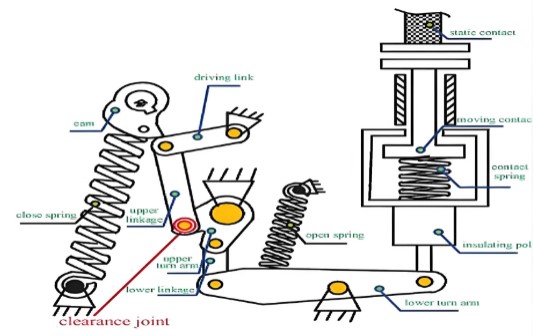
Why is lubrication essential in the high-voltage circuit breaker operating mechanism?
Lubrication in the operating mechanism of high-voltage circuit breakers is essential for ensuring smooth and efficient operation. It plays a crucial role in minimizing wear, reducing friction between moving parts, and preventing corrosion. Proper lubrication also helps to lower maintenance costs and extend the lifespan of the operating mechanism.
- Maximizes Wear Reduction: Lubrication significantly reduces wear on moving parts, ensuring that components remain in good condition over time.
- Reduces Friction: By minimizing friction, lubrication enhances the efficiency of the mechanism, allowing it to operate more smoothly and with less energy loss.
- Prevents Corrosion: Lubricants form a protective layer on metal surfaces, preventing contact with moisture and corrosive substances, which can cause rust and degradation.
- Extends Lifespan: Proper lubrication prolongs the life of the high-voltage circuit breaker's operating mechanism by maintaining its integrity and reducing the need for frequent repairs or replacements.
- Lowers Maintenance Costs: By reducing wear and tear and preventing corrosion, lubrication helps to minimize maintenance requirements and associated costs.
What are the main types of lubricants used in high-voltage circuit breaker operating mechanisms?
The types of lubricants commonly used in the operating mechanisms of high-voltage circuit breakers can be categorized into three main types: mineral oil-based greases, synthetic greases, and solid lubricants. Each type has its unique advantages and applications, depending on factors such as temperature, load, and environmental conditions.
Mineral Oil-Based Greases:
- Advantages: Widely used due to their availability and low cost.
- Applications: Suitable for moderate temperature and load conditions.
- Characteristics: Provide good general-purpose lubrication and are easy to apply.
Synthetic Greases:
- Advantages: Offer superior performance in extreme temperature and heavy load conditions.
- Applications: Ideal for high-temperature environments and applications requiring high durability and reliability.
- Characteristics: Higher cost compared to mineral oil-based greases, but provide longer service life and better resistance to thermal breakdown.
Solid Lubricants:
- Advantages: Highly effective in dry or extreme environmental conditions, providing long-lasting protection with minimal maintenance.
- Applications: Suitable for environments where traditional liquid or grease lubricants are not feasible, such as in high-vacuum or high-dust conditions.
- Characteristics: Examples include graphite, molybdenum disulfide (MoS₂), and PTFE (Teflon). These lubricants can be applied as coatings or powders.
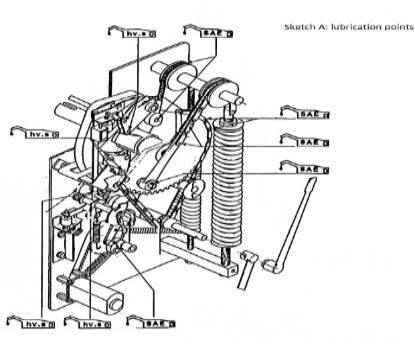
How do I choose the right lubricant for my high-voltage circuit breaker operating mechanism?
Choosing the right lubricant for your high-voltage circuit breaker's operating mechanism depends on several factors, including the design of the breaker, operating conditions, and maintenance requirements. Consider the operating temperature range, load capacity, environmental factors, and compatibility with the materials used in the mechanism. Refer to the manufacturer's guidelines and industry standards to make an informed decision.
Consider the Operating Temperature Range and Load Capacity:
Ensure the lubricant can perform effectively within the temperature range and under the load conditions your circuit breaker will experience.
Evaluate Environmental Factors:
Assess the environmental conditions, such as exposure to moisture, dust, chemicals, or extreme temperatures, and choose a lubricant that can withstand these conditions.
Ensure Compatibility with Materials:
Verify that the lubricant is compatible with the materials used in the high-voltage circuit breaker's operating mechanism to avoid any adverse reactions or degradation.
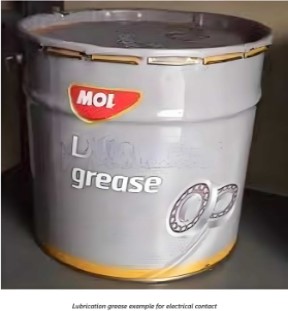
How often should high voltage circuit breaker operating mechanism lubrication be performed?
The frequency of lubrication for the operating mechanism of a high-voltage circuit breaker depends on various factors, including the type of lubricant used, environmental conditions, and the usage of the circuit breaker. Generally, lubrication should be performed during routine maintenance or according to the manufacturer's recommendations. Regular inspections help identify any lubrication-related issues and ensure the proper operation of the mechanism.
Lubrication Should Be Performed During Routine Maintenance or According to Manufacturer's Recommendations:
Follow the manufacturer's guidelines to determine the optimal lubrication schedule based on the specific model and operating conditions of your high-voltage circuit breaker.
Regular Inspections Help Identify Lubrication-Related Issues:
Periodic checks can detect signs of wear, contamination, or insufficient lubrication, allowing for timely corrective actions.
Lubrication Frequency Depends on Lubricant Type, Environmental Conditions, and Circuit Breaker Usage:
Consider the properties of the lubricant, the severity of the environment (e.g., temperature, humidity, dust), and the intensity of the circuit breaker's operation when determining how often to lubricate.
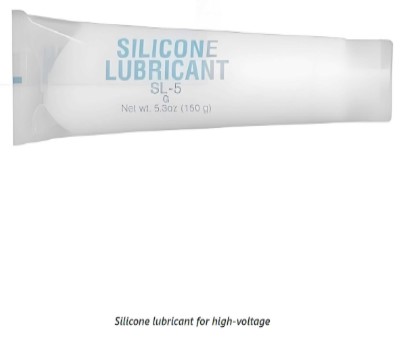
What are the potential consequences of inadequate lubrication in the high-voltage circuit breaker operating mechanism?
Insufficient lubrication in the operating mechanism of a high-voltage circuit breaker can lead to increased friction between moving parts, resulting in accelerated wear. This can cause the mechanism to operate inefficiently, leading to potential failures, increased maintenance costs, and shortened lifespan. In extreme cases, inadequate lubrication can result in catastrophic failure of the operating mechanism, causing significant damage to the circuit breaker and surrounding equipment.
Increased Friction Can Lead to Accelerated Wear, Reducing Efficiency and Causing Potential Failures:
Higher friction levels can cause components to degrade faster, reducing the overall efficiency of the mechanism and increasing the likelihood of operational issues.
Insufficient Lubrication Can Increase Maintenance Costs and Shorten Lifespan:
Frequent repairs and replacements due to wear and tear can significantly increase maintenance costs and reduce the overall lifespan of the high-voltage circuit breaker.
In Extreme Cases, Catastrophic Failure of the Operating Mechanism Can Damage the Circuit Breaker and Surrounding Equipment:
Severe lack of lubrication can lead to sudden and complete failure of the operating mechanism, potentially causing extensive damage to the circuit breaker and other connected equipment.
Are there any environmental considerations when choosing a lubricant for the high-voltage circuit breaker operating mechanism?
When selecting a lubricant for the operating mechanism of a high-voltage circuit breaker, environmental factors play a significant role. Some lubricants can have adverse effects on the environment, while others are designed to be environmentally friendly.
Choosing biodegradable or low-impact lubricants can help minimize the environmental impact of the high-voltage circuit breaker's operation, while still providing effective lubrication and protection.
Some Lubricants Can Have Adverse Environmental Impacts:
Certain lubricants may contain harmful chemicals or compounds that can pollute soil and water, posing risks to ecosystems and human health.
Biodegradable or Low-Impact Lubricants Help Minimize Environmental Impact:
These lubricants are designed to break down naturally over time and have fewer harmful effects on the environment, making them a more sustainable choice.
Choose a Lubricant That Provides Effective Lubrication and Protection While Being Environmentally Friendly:
Opt for lubricants that offer the necessary performance and protection for your high-voltage circuit breaker while also reducing environmental harm.
Conclusion
In conclusion, lubrication is a critical aspect of maintaining the operating mechanism of high-voltage circuit breakers. Selecting the right lubricant and following appropriate maintenance practices helps ensure the efficient operation of the circuit breaker, reduces maintenance costs, and extends its lifespan. As an electrical engineer working in the maintenance unit of a high-voltage substation, understanding the importance of lubrication and the types of lubricants available is essential for achieving optimal performance of high-voltage circuit breakers and overall substation reliability.
By adhering to these principles, you can ensure that your high-voltage circuit breakers operate reliably and efficiently, contributing to the overall safety and performance of the substation.

